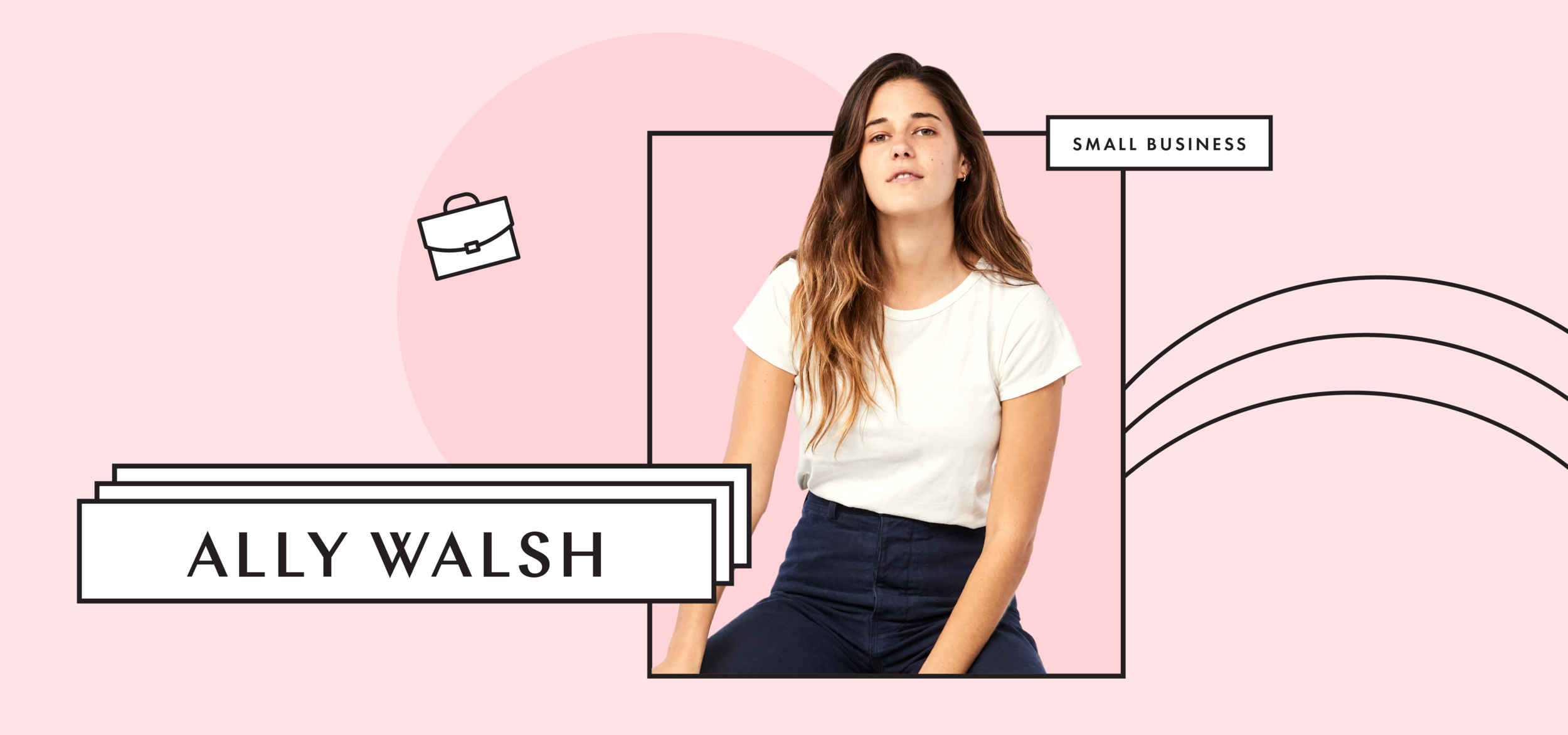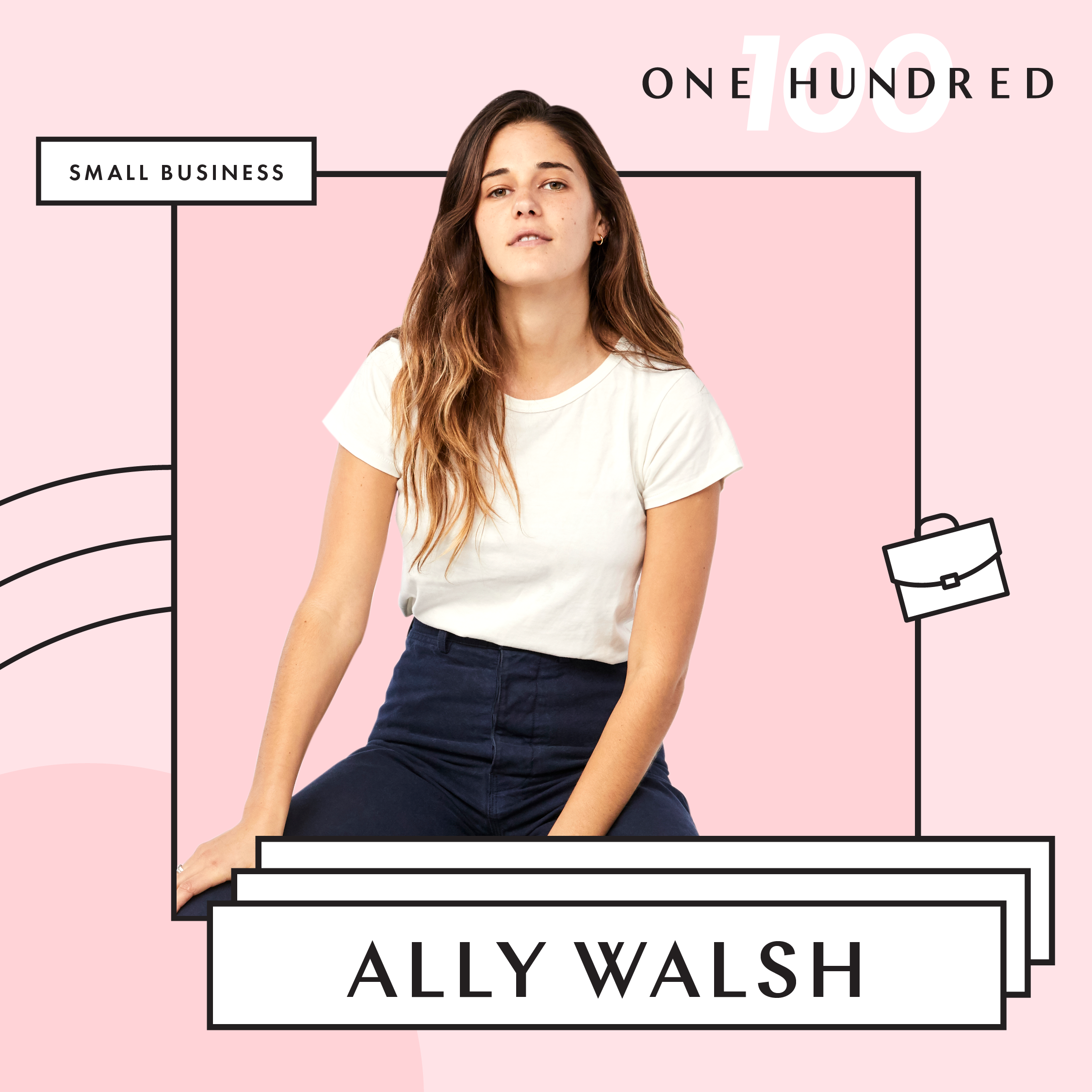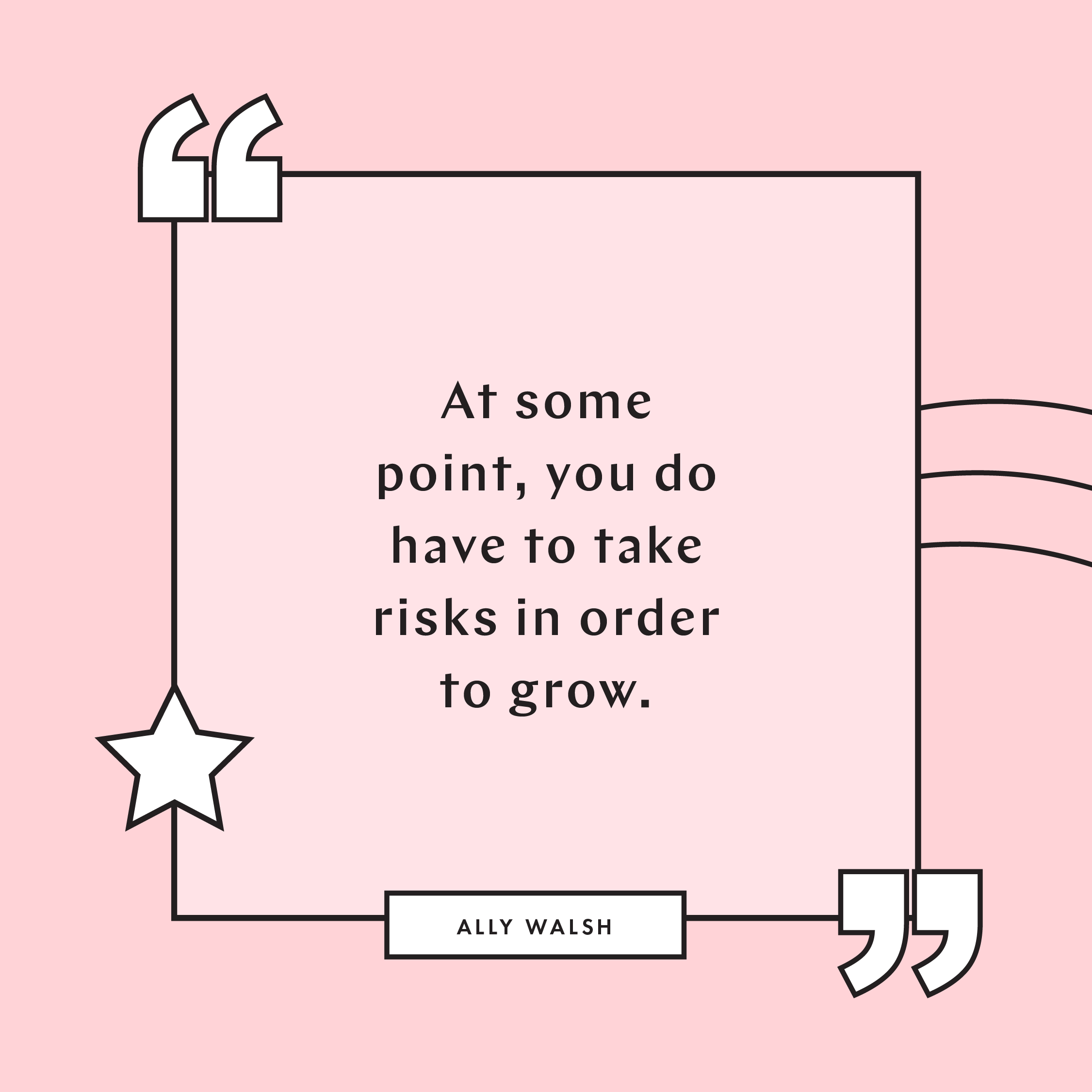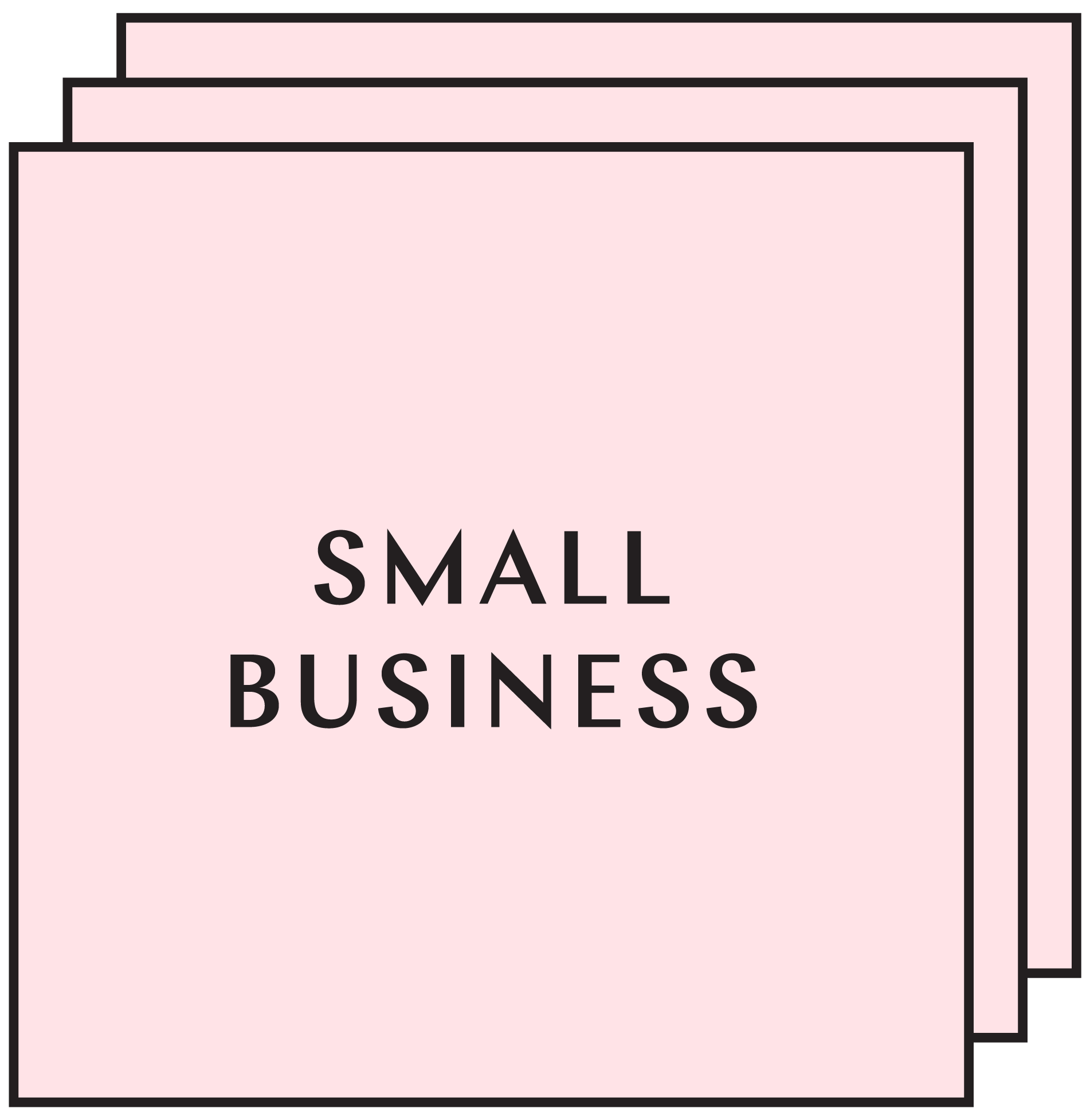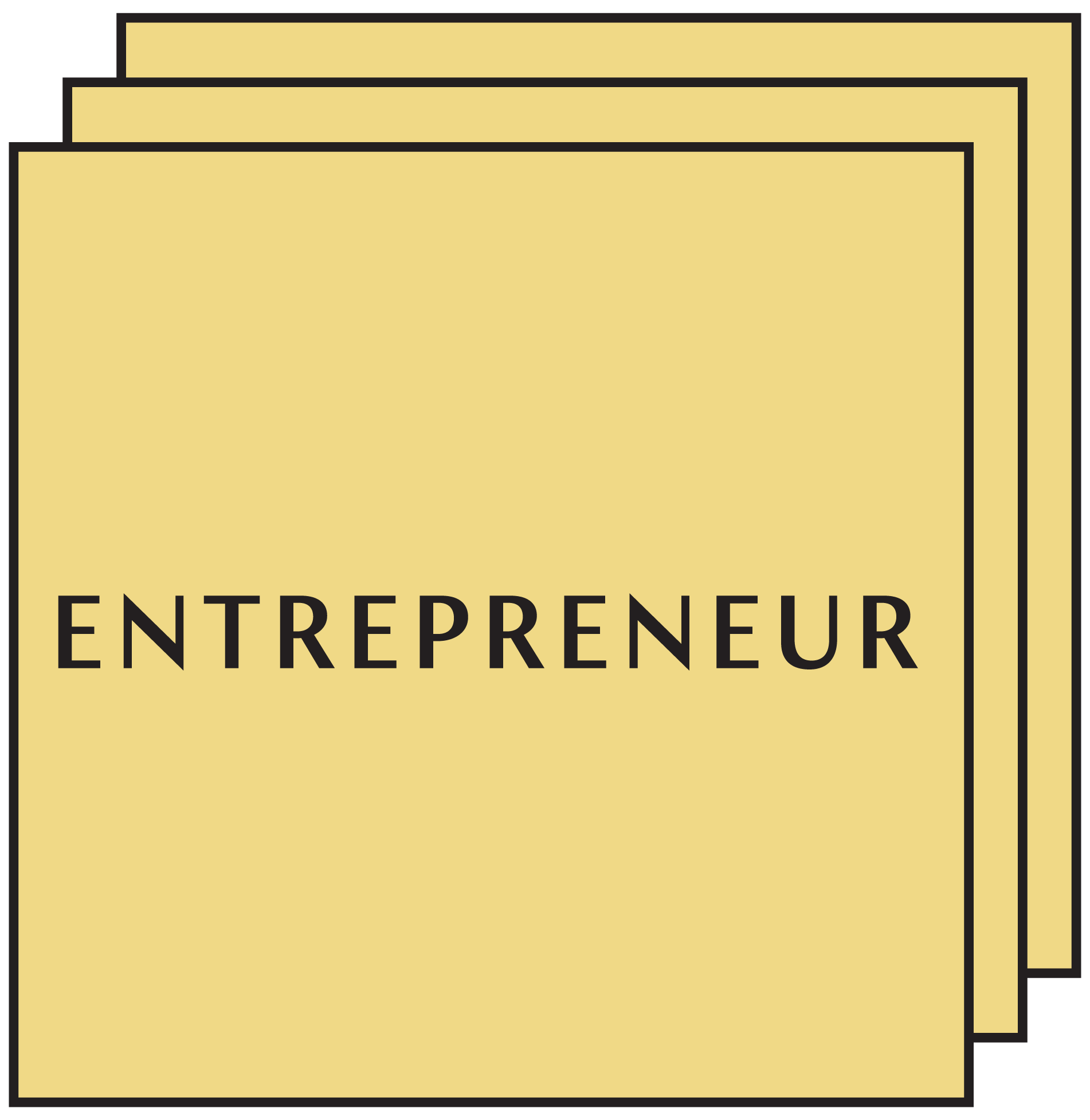If there’s one thing we’ve learned from the many interviews we’ve conducted at Create & Cultivate it’s to never let competition stop you from starting a business you’re passionate about. So, when Ally Walsh, a model/creative, and Casey Wojtalewicz, a musician/writer had the lightbulb moment to start their own coffee bean company they didn’t think about a saturated market, they just threw their ongoing passion for the java juice into their own brand and launched Canyon Coffee.
Now that little lightbulb is a shining spotlight that has successfully disrupted a space that desperately needed newness, and they’ve garnered a cult following in the process. Read on to hear how Walsh did it and her small business advice for those who want to take the leap too.
CREATE & CULTIVATE: In an interview, you said that Canyon Coffee came about one day when you and Casey (your partner and co-founder) were sitting around the kitchen table and you just decided to make it happen. Can you take us back to that moment? How did you take your lightbulb moment and turn it into a product and profitable business
ALLY WALSH: The light bulb moment was really a culmination of different events and ideas coming together over several years. It drew from our ongoing passion for coffee and relationships made within the field, knowledge of the industry and awareness of a gap (or opportunity), and the organic creation of a brand we had more or less been developing, unintentionally.
I'd say it felt a lot like connecting the dots, the opposite of forced. The brand creation and business strategy came after this moment, but we felt that by creating something rooted in an authentic passion—something that made our lives better on a daily basis—we couldn't go wrong!
Did you know anything about making coffee? How did you learn? What were those first steps? What is one thing you didn’t do in the setup process, that ended up being crucial to the business and would advise others to do asap?
Yes! The love and passion for coffee were there long before Canyon. Our learning curve took a big leap forward when Casey broke the french press one morning and brought home a Chemex to replace it. Not that the Chemex is superior—it just turned us on to how different coffee can come out through different brew methods. We slowly began perfecting our homebrew.
Casey took a deeper dive when he started working in the industry as a barista. As far as the setup process, I'm not sure what we would do differently. We knew we had a lot to learn, so we just went at it with curiosity. We didn't start by asking for or raising a bunch of money, because we wanted to learn every part of the business for ourselves before handing it off to others. I think if we were to do it again, we'd start off by making a greater budget/plan and starting off with more cash. But we'd only do that now because we have years of experience and would know what to do with those finances.
“Take whatever time and space are available to get in touch with the things that you’re really passionate about.”
When you hit a bump or hurdle in your career, how do you #FindNewRoads + switch gears to find success?
In a way, Canyon is almost an example of that. Both Casey and I come from careers that promise less long-term security than others (modeling and music). We didn't hit any big bumps, but Canyon was obviously a departure and a new road for both of us. It came about pretty organically.
Every situation is different when we encounter bumps or hurdles. My best advice would be to take whatever time and space are available to get in touch with the things that you're really passionate about and see what opportunities come to you that resonate with that. For us with Canyon, it was coffee!
Talk us through the bootstrapping process. How did you self-fund your business? Would you recommend that route to other entrepreneurs? Do you have plans to scale or raise?
We literally got going with a credit card. We've basically sold everything we produce, have been profitable from the beginning, and put everything back into growing the business. We were able to start with so little because, through connections and relationships, we were able to bypass the regular large expenditures and risk of building a roasting operation from scratch. I'd recommend that approach for first-time business founders, though the funding could also come from a family member who believes in your idea.
For us, as a model and musician, we didn't feel raising money to start a coffee company was going to be very successful, and therefore we didn't consider it at the time. Now that we've proven ourselves, raising the necessary capital to scale is a lot more realistic and our options are better. We do have plans to scale, and we want to consider all options. Maintaining our ownership of what we've built through love and sweat is a priority.
You've achieved so much success, but knowing what you do now, what do you wish you could go back and tell yourself?
Whenever I think of my younger self, I always want to tell her to not stress so much—that 90% of what she was stressing about was so inconsequential. And my future self will probably say that to the “me” now too!
When you're a small business owner, you have to fall in love with the numbers. What have been some of the hardest money lessons you've learned along the way? What is your #1 money tip for small business owners? Why?
Wrapping our heads around cash flow. It's different with every industry. In our case, we're a manufacturing operation, so it's not as simple as "Product A costs $X, and we sell it for $Y." There's a lot more that goes into it, and we produce multiple times a week. But it's so crucial to figure out and to stay on top of accounts receivable because we've definitely hit points whereby not staying on top of our accounts to pay on time, led to us to be late to our vendors. We hate that and strive to be a great customer to the companies that enable us to do what we do.
I'd say the #1 money tip that we've really begun to think of, for businesses at our stage, is to only raise or borrow money for quantifiable things that will turn a profit—like inventory. It always sounds really appealing to raise money and hire someone, but it only makes sense if there's a solid plan for how the business is going to scale to afford that person when the funding is through.
Creating buzz so people know about your brand can be challenging for small businesses. How do you market your business? How are people aware of your business? What are some unique social/marketing tools you've used to grow organically?
We've grown our brand exclusively through social media and events. We did two to three pop-up events a month during the first year of Canyon, and it went a long way. People would often remark ‘you guys are everywhere!’ because the events would have a life of their own through social media afterward. We also retain and grow our base through emails, which we're careful to stay consistent on but never inundate people's inboxes. We also try to focus on creating content that we actually find interesting. It's not always about coffee.
What has been the toughest business decision you've had to make? And how did you turn it into an opportunity?
We say no to so many opportunities. The hardest ones have been opportunities for shops and roasting spaces of our own. One such ‘no’ turned into a wonderful opportunity. The relationship with the brothers behind our now-partner shop, Neighborhood, started off with them asking if we were interested in starting a shop. We said, truthfully, no, that wasn't our mission. But we got along great with them and built a lot of trust and mutual respect. We began helping them with the shop in a consulting capacity, and it turned into one of our best accounts. We're excited to have them as partners and continue collaborating with them on more projects.
“We didn’t start by asking for or raising a bunch of money, because we wanted to learn every part of the business for ourselves before handing it off to others.”
What are some of the biggest mistakes you made early on and how did you recover from it? Or are you still making mistakes?
We'll always make mistakes. I think mistakes are inevitable. But when you're new and small, it's important to recognize that you're more likely to make mistakes and limit the size of those mistakes. You learn a lot from them. For example, don't invest in a huge inventory of something you've never sold if you don't have to. Start small to test it out. As we get bigger, we become more sure of certain things and feel more confident in our ability, so it enables us to take bigger risks. This doesn't mean we're not going to make mistakes, but at some point, you do have to take risks in order to grow.
Where do you see Canyon Coffee headed? What are you manifesting for 2020?
I see us continuing to grow. We've been growing at a really great rate organically since we started, and a lot of our time and effort is focused on maintaining that rate in a sustainable way. I see us entering into more key partnerships with shops, cafes, and hotels as more businesses recognize we offer support for those services, and I see us connecting with more people who order our coffee and make it at home. Turning people on to the beauty of a coffee morning ritual is really what it's all about for us. I also see us finally bringing a Canyon shop to life here in L.A., for people to come and experience us firsthand in a way that's intentional for us.
Photographer: Jenna Peffley
Hair: Styled by OGXpert & Celebrity Hairstylist Jillian Halouska
VIEW THE FULL CREATE & CULTIVATE 100 SMALL BUSINESS LIST HERE.


